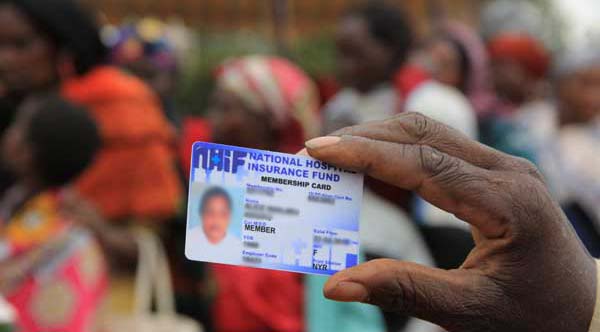NHIF Membership : Kenyans who haven’t joined the National Hospital Insurance Fund will not be able to access government services. This comes as the State moves to ensure that every adult Kenyan is enlisted with the NHIF. According to the fund, NHIF membership will be elevated to the same level as the KRA PIN, without which a citizen can hardly access government services.
This means that Kenyans without the NHIF will not be able to make transactions such as buying and selling of land, transfer and licensing of motor vehicles, and other transactions that require a KRA PIN number. “We are looking at tying the active membership of NHIF to other services just like KRA PIN is for those going for things such as opening a business or seeking government tenders. This is one of the areas we are looking at once the law passes to encourage enforcement of the same,” NHIF chief executive officer Peter Kamunyo said. “Let’s say you want to renew your driving licence or open an exhibition stall, you need certain licences from the government. To get these licences, part of the condition will be to be an active NHIF member.”
In May 2021, the government announced that it was planning to introduce new health reforms that will see every household in Kenya pay a mandatory annual health coverage fee of Sh. 6,000. This payment will be made to facilitate the enrollment of every household in a universal health coverage for inpatient and outpatient services. According to the Cabinet Secretary for National Treasury Ukur Yatani, this amount will be paid cover a whole year and will include medical services such as maternity, dialysis, cancer treatment and surgery.
“Government focus is on the establishment of a mandatory UHC scheme to be managed by NHIF and regulated by the Ministry of Health and act as the national scheme for all persons resident in Kenya, notwithstanding one’s social status,” Yatani said.
Raila acquires four brand new choppers from France
This UHC plan will be part of the government’s reforms to make health insurance mandatory among all Kenyans regardless of their employment status. “Focus is also on provision of health insurance cover to initially one million households who are vulnerable and unable to meet even that low-cost premium. The identification of these one million households by the Ministry of Health, Ministry of Labour and Social Protection, and the counties across the entire country has already begun,” Yatani said.
According to the Economic Survey report, NHIF membership had risen from 4.4 million Kenyans to 8.4 million people from 2013 to the start of 2020.








